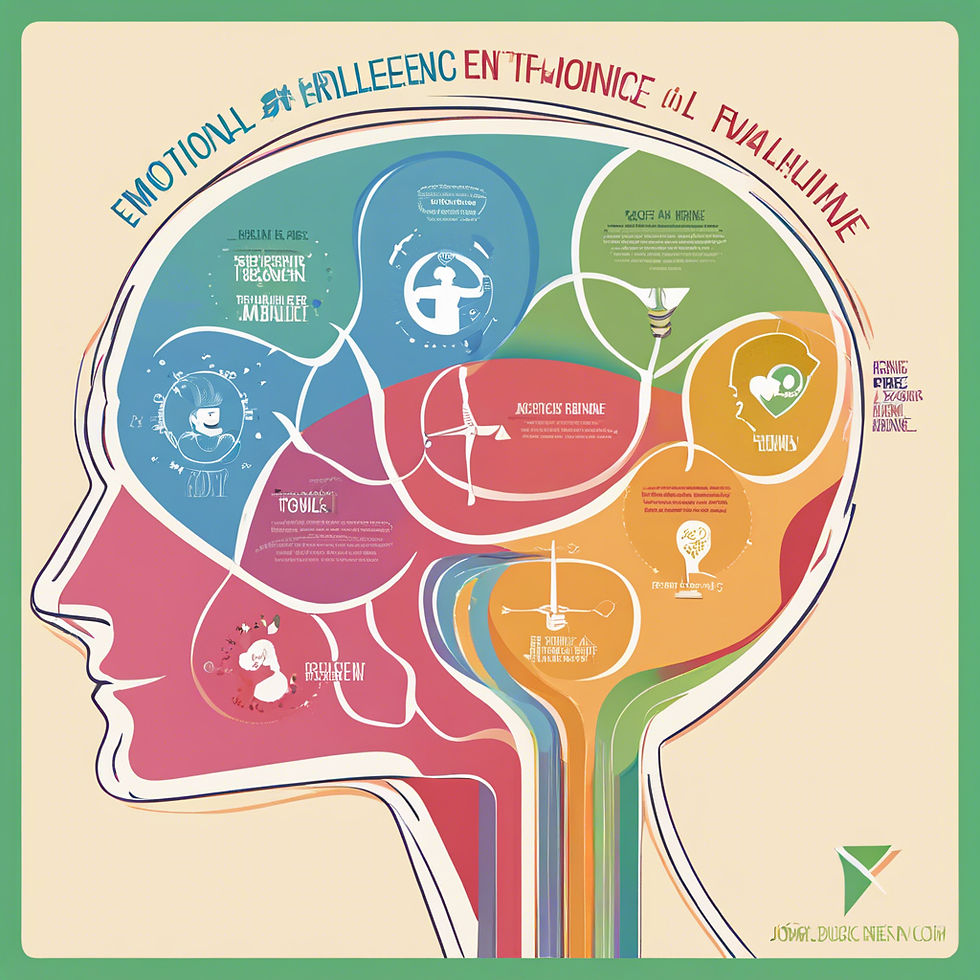The Home as the First School: How Parents Shape Children’s Manners and Values
- Southerntechcollege Bayawan
- Nov 11, 2024
- 4 min read
Manners are the social skills that guide our interactions and create harmony in our relationships, and the foundation of these skills begins at home. While schools play a vital role in reinforcing positive behavior, parents are a child’s first teachers when it comes to values, respect, and good manners. What children learn at home influences their behavior, attitudes, and interactions throughout their lives. In this article, we’ll explore the role of parents in cultivating good manners in children, why it matters, and some practical ways parents can nurture these essential qualities.
Why Parents Are Crucial in Teaching Manners
Modeling Behavior. Children are like sponges, absorbing the behaviors and attitudes they observe at home. Parents have a powerful influence as children’s primary role models, and kids often imitate what they see. When parents demonstrate kindness, respect, and consideration, children learn to adopt those behaviors as well.
Creating a Safe Learning Environment. The home is the first place children feel secure and loved, which makes it an ideal environment for teaching manners. Children learn better when they feel safe and know they won’t be judged for mistakes. Parents can gently correct and guide their children, helping them understand right from wrong in a supportive setting.
Establishing Core Values Early On. Values like honesty, respect, patience, and compassion are best instilled from a young age. Parents who prioritize these values lay a strong foundation that helps children navigate social situations as they grow. When values are introduced early, children are more likely to embrace them as part of their identity.
Preparing Children for School and Social Settings. Before children enter school, they often rely on their parents for social interaction. Learning manners at home helps children build the confidence they need to interact with teachers, classmates, and others. These early lessons make the transition to school smoother and help children establish positive relationships with others.

Practical Tips for Teaching Manners at Home
Lead by Example. Children often learn by imitation, so be mindful of how you interact with others. Treat family members with kindness and respect, express gratitude, and be polite in your daily interactions. Your actions will leave a lasting impression on your children.
Set Clear Expectations and Boundaries. Help children understand what is expected of them by clearly communicating appropriate behavior. For example, explain why it’s important to say “please” and “thank you” or why sharing is valuable. Setting expectations gives children a sense of direction and purpose.
Reinforce Positive Behavior. Acknowledging and praising children when they display good manners reinforces positive behavior. Recognize their efforts, whether it’s sharing a toy or speaking respectfully, to encourage them to keep up the good work.
Correct with Compassion. Mistakes are part of learning, so correct your child gently when they make a misstep. Use constructive language and explain why certain behaviors are inappropriate without shaming them. Compassionate correction helps them learn without feeling discouraged.
Make It Fun. Learning manners doesn’t have to be serious all the time. Incorporate games, stories, and role-play to make lessons on manners enjoyable. Activities like pretend play (taking turns, waiting patiently) make practicing manners more engaging and memorable.
Discuss Real-Life Scenarios. Use everyday situations as teaching moments. If your child sees someone acting disrespectfully, discuss how it could have been handled differently. Real-life examples help children see how manners apply in various situations.
Key Manners and Values Parents Can Teach at Home
Respect for Others. Respect is the cornerstone of all good manners. Parents can teach respect by showing children how to speak politely, listen attentively, and acknowledge the feelings of others. Simple practices, like saying “please” and “thank you,” show children how to express appreciation and courtesy.
Honesty and Integrity. Teaching children the value of honesty helps them develop trust and build meaningful relationships. Parents can model honesty by admitting their own mistakes and emphasizing the importance of telling the truth, even when it’s difficult. This lays the groundwork for integrity and accountability.
Kindness and Empathy. Acts of kindness, whether it’s sharing toys or offering help, show children the joy of giving and the importance of considering others’ feelings. Parents can encourage empathy by asking children how they would feel in someone else’s shoes and praising them when they act with compassion.
Patience and Self-Control. Learning to wait and control impulses is a valuable life skill that parents can model. Practicing patience helps children handle frustration and build resilience. Parents can guide children through small tasks, like waiting their turn or practicing delayed gratification, to help them develop self-control.
Responsibility. Teaching children to take responsibility, even in small ways, fosters independence and accountability. Parents can give children simple chores or encourage them to own up to mistakes. This helps them understand that actions have consequences and instills a sense of pride in doing things on their own.
Gratitude. Gratitude is a powerful way to develop a positive outlook on life. Parents can cultivate this by encouraging children to express appreciation for what they have and the people who help them. Practicing gratitude daily, like sharing something they’re thankful for, helps children focus on the positive aspects of life.
Final Thoughts: Cultivating Manners Starts at Home
Parents are children’s first and most influential teachers, and the lessons they provide about respect, kindness, and responsibility last a lifetime. By creating a home environment where good manners and positive values are celebrated, parents can help their children grow into respectful, confident, and compassionate individuals.







Comments